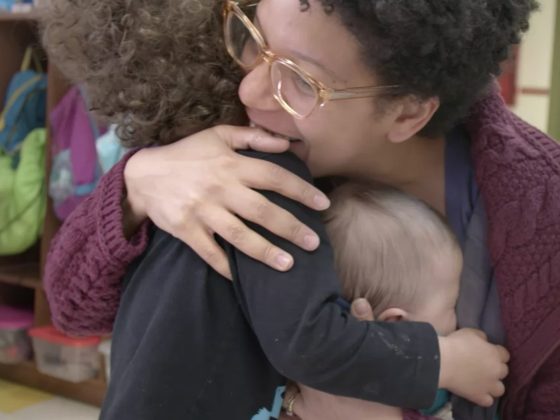
Grown-Ups Come Back
Separations are tough on everyone, but routines and preparation help.
Separating from a parent and transitioning to a new person or space can cause little ones to have big feelings. Here are some ways to make the transition a bit easier:
Prepare
- Parents: Prepare children in advance. Before drop-off, let them know that they will be spending time with another caregiver (and who the person is), but that you will come back for them later and are so excited to see them again. You might play games like peek-a-boo and hide-and-seek to show them that things that disappear, reappear again.
- Caregivers: Give children something to be excited about during the day. Tell them about an activity you’ll do or a book you’ll read together.
Engage
- Parents: Give little ones a comfort item to hold onto during the day to help them feel secure. It might be a family photo, a favorite stuffed animal, or a shirt that has your scent.
- Caregivers: After children say goodbye to their parent, immediately engage them in activities or help them play with other children to keep their minds off the fact that their parent is leaving, and get them excited about the day to come.
Reassure
- Parents: Let children know that you’ll always come back to get them. It’s only “Bye bye for now.”
- Caregivers: If you notice little ones feeling sad or missing their parent during the day, reassure them that they are cared for with a hug, and remind them that their parent will be back to pick them up later.
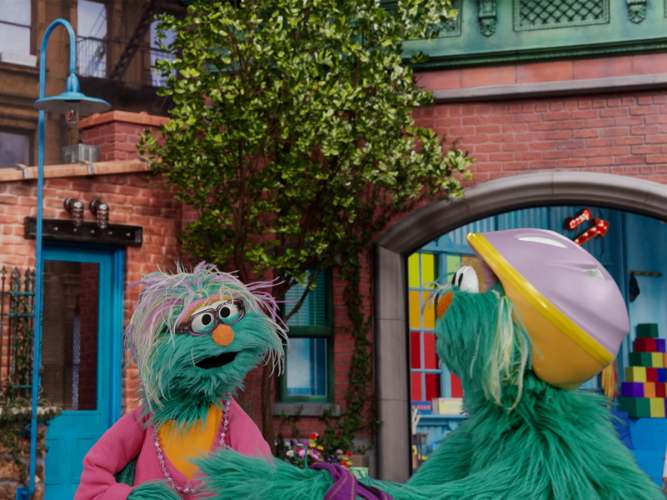
Parenting Moment: Describing
The way you talk with children matters! Your words have power.
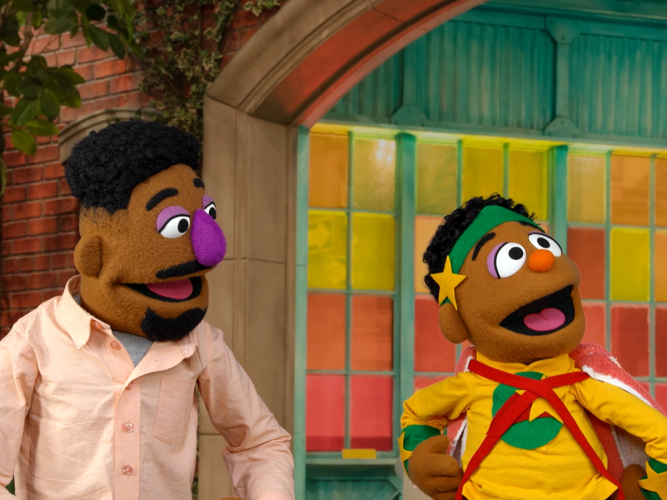
Parenting Moment: Imitating
Playing is learning! The way you play with children matters… your actions and words have power.
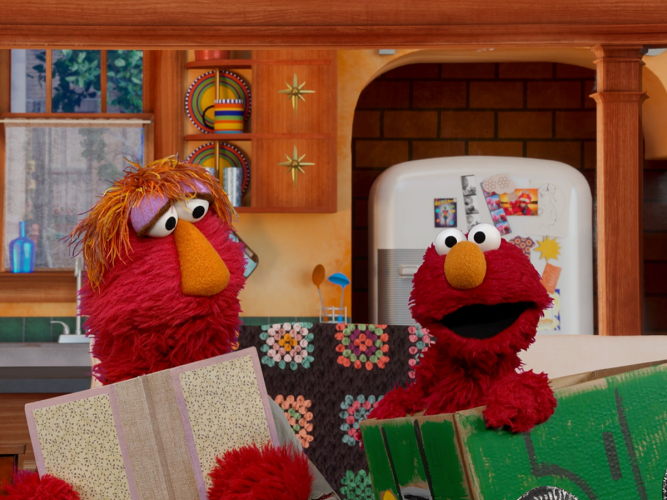
Parenting Moment: Reflecting
The way you talk with children matters… your words have power!
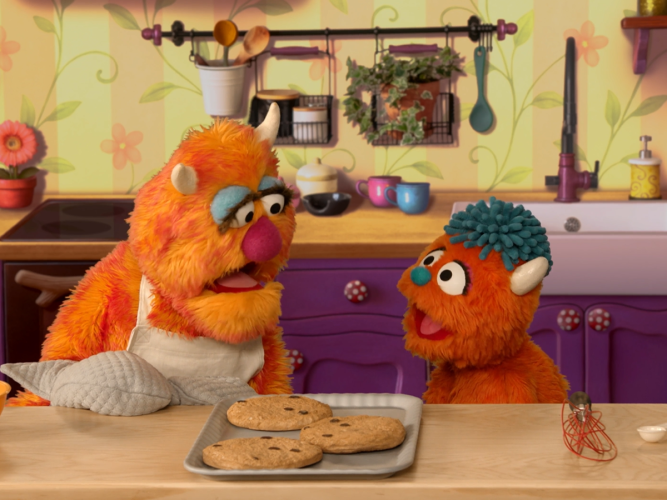
Parenting Moment: Enjoying!
Showing you enjoy your time together with your child builds your special bond. And when you’re being positive, your little one is more likely to do the same.
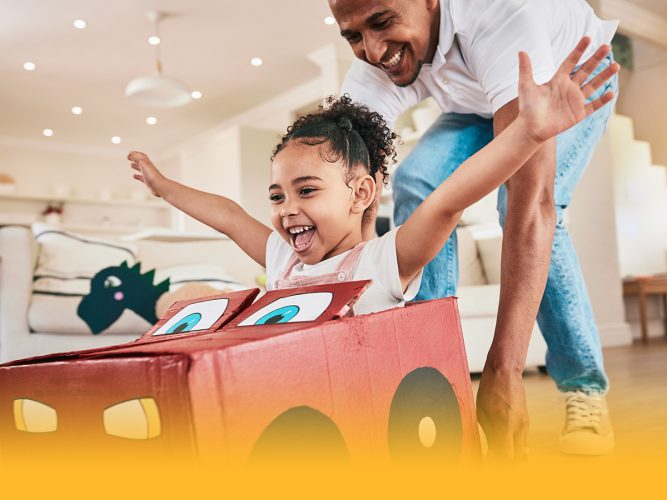
The Power of Following Children’s Lead
Joining children in their play offers so many opportunities to encourage, communicate, bond, spark and share joy, teach, show warmth and kindness, and help them thrive.
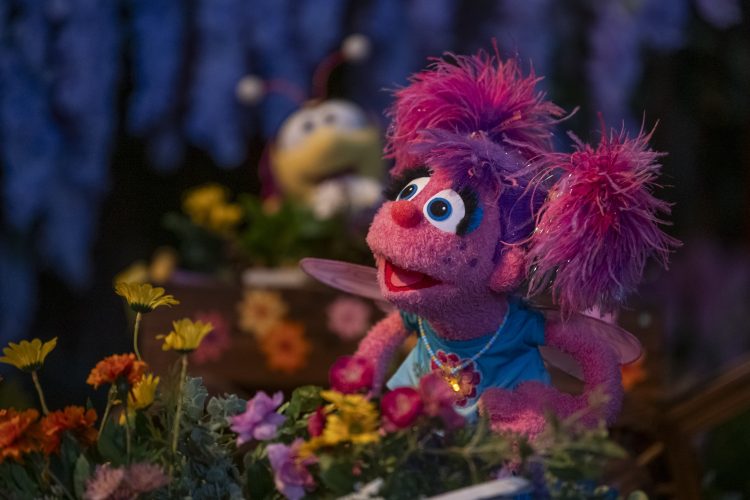
Watch and Play: Abby's Magical Beasties
Watch this episode and explore ways to extend the learning at home.
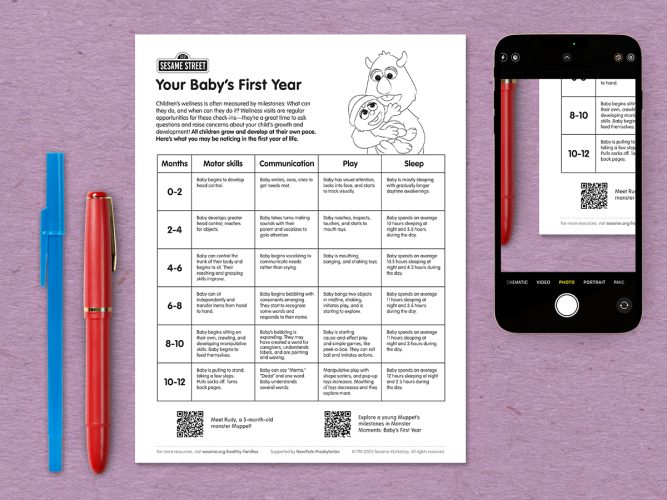
Milestones: Your Baby’s First Year
All children grow and develop at their own pace; use this chart to guide your expectations and observations so you can talk to your child’s pediatrician about questions or concerns.
